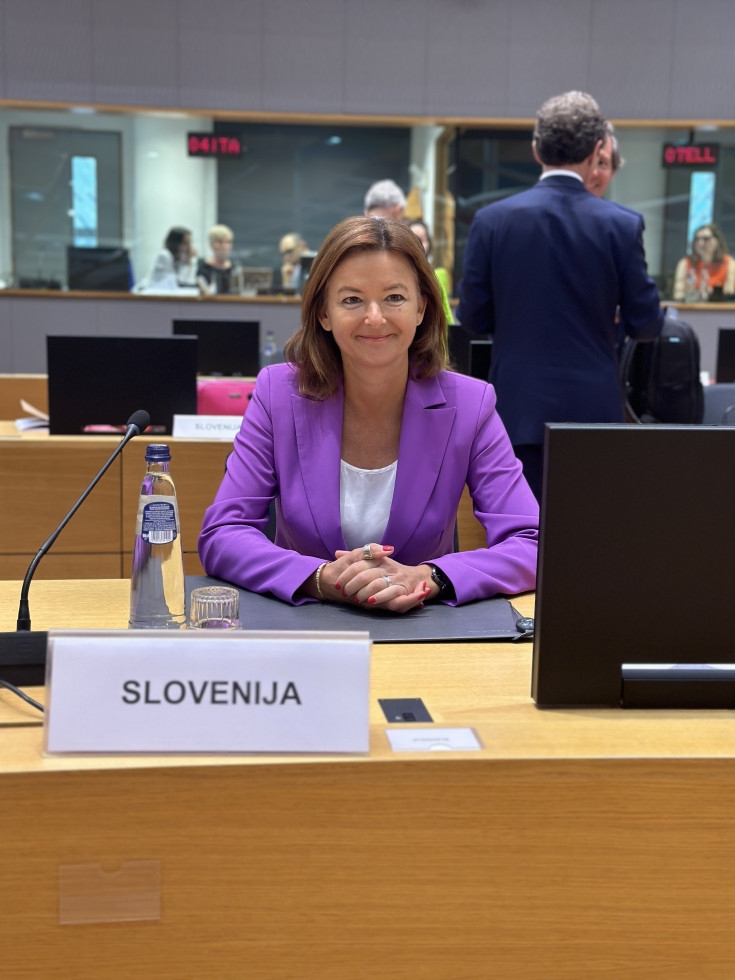Minister Fajon at EU Foreign Affairs Council: “A strong Europe is a prerequisite for a safe Ukraine”

Minister Tanja Fajon | Author Ministrstvo za zunanje in evropske zadeve
Once again, members of the EU Foreign Affairs Council started the session by discussing Russia’s aggression against Ukraine. Minister Fajon pointed out that the EU should commit to long-term support for Ukraine, providing financial, economic, military and reconstruction aid, help with demining and care for the most vulnerable victims of war, especially women and children. She added that “long-term support for Ukraine can only be provided by a strong, united and stable EU”. Regarding Russia’s decision to end its participation in the Black Sea grain deal, she said: “We call on Russia to reconsider its decision and resume the deal to avoid further aggravating the global food security situation, which would have devastating consequences for the most vulnerable groups in Africa.”
A large part of the discussion focused on the EU’s relations with Türkiye. “Slovenia is pleased to note Türkiye’s recent progress on human rights and the respect for European values, after a decade of regression in these fields. We hope this is a sign that Türkiye would like to strengthen its ties with the EU. After all, we see Türkiye as our strategic partner in the fields of security, interoperability and energy that plays an important role in providing stability in the region, including by controlling migration,” the Minister said.
In a meeting with US Secretary of State Antony Blinken, who joined the Council virtually, Minister Fajon stressed the importance of unity of the EU and the US in ensuring stability in the Western Balkans.
Before the Council session, the ministers attended an informal breakfast event with the UN High Commissioner for Human Rights Volker Türk. Minister Fajon assured him of Slovenia’s support in addressing key global issues, including climate change, demographic challenges and digitalisation. She stressed that these topics will be among Slovenia’s top priorities during its seat on the UN Security Council. “We cannot let human rights become the collateral damage of geopolitical tensions. I am proud that human rights are a key pillar of our foreign policy and to see Slovenia be the driving force behind efforts to acknowledge the right to a clean, healthy and sustainable environment,” Minister Fajon said.
The ministers also approved the conclusions on EU priorities for the UN General Assembly and on the mid-term review of the EU Action Plan on Human Rights and Democracy.
On the eve of the EU Foreign Affairs Council meeting, Minister Fajon attended the 5th Stabilisation and Association Council, which reviewed the progress made in Bosnia and Herzegovina relevant to its EU accession. “Slovenia had strongly advocated for Bosnia and Herzegovina to be granted candidate status last year. We expect to see ambitious implementation of the reforms necessary to start EU accession negotiations by the end of this year,” said Minister Fajon in a press release.

